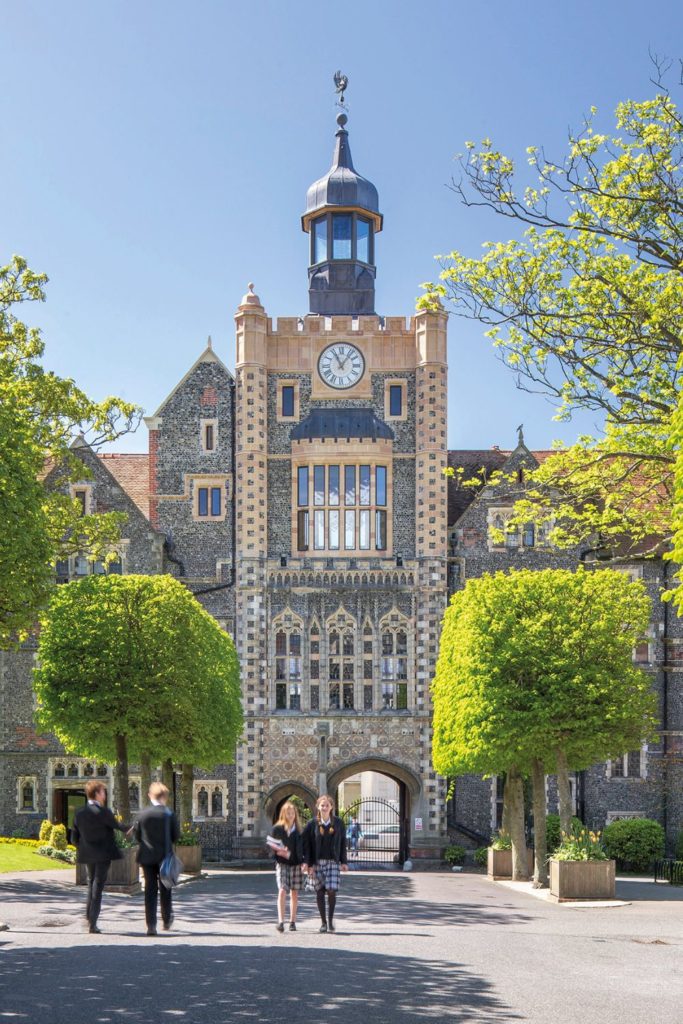Schools Show Respect for Anti-Bullying Week 2018
By
7 years ago
Vital efforts to prevent bullying and protect victims

The Anti-bullying Alliance, established by the NSPCC and the National Children’s Bureau in 2002, is a unique coalition of organisations and individuals, working together to stop bullying and create safer environments in which children and young people can live, grow, play and learn.
This years theme for anti-bullying week (November 12 – 16) was ‘Choose Respect’. This move followed a consultation with over 800 children, teachers and members of the Anti-Bullying Alliance, from which it emerged that demonstrating that bullying is a behaviour choice, and that children and young people can set a positive example by opting to respect each other at school, in their homes and communities, and online, is a top priority and a primary way of reducing instances of bullying.
Choose Respect
Their biggest Anti-bullying Week to date, many schools around the country joined the Anti-bullying Alliance to raise awareness for this important cause. Discussions held by pupils at the Royal Hospital School (RHS), Holbrook, a co-educational day and boarding senior school, culminated in a whole-school gathering to spell out the word ‘RESPECT!’ in a mark of their understanding and commitment to the cause. Assistant Head (Pastoral), Leigh Corbould, said ‘We are delighted to be involved in this national campaign which is part of our overarching approach to anti-bullying at RHS.’
‘In September this year, we hosted the Diana Award Anti-Bullying Ambassador Programme for young people and staff from schools across the region and our trained and pupil-led Peer Support Mentors work alongside the Anti-Bullying Committee (ABC) to prioritise acts of kindness and prevent bullying behaviour within our community.’
Meanwhile, up north at Ampleforth College, Yorkshire, the leading Catholic co-educational boarding and day school, Anti-Bullying Week 2018 was marked with peer support workshops in which students and staff explored the meaning of respect. The workshops, facilitated by Julian Allisstone, Teacher of EAL and School Counsellor, demonstrated that bullying is a conscious choice and empowered students to make a difference through their actions individually.
At Ampleforth College, faith plays a huge part in the daily conversation and fabric of school life and through their holistic education, every pupil is taught to honour and practice the Benedictine core values of attentiveness, hospitality, respect, integrity, stewardship and equilibrium, giving pupils a sense of stability and calm to guide them through the ever-changing world that they are growing up in.

The Benedictine values of attentiveness, hospitality, respect, integrity, stewardship and equilibrium give pupils a sense of stability at Ampleforth College
Adrian Smerdon, Deputy Head Pastoral and Designated Safeguarding Lead said:
‘Without a doubt this year’s theme for Anti-Bullying Week taps into Ampleforth’s existing ethos of respect which is ingrained into all students through our Benedictine values.’
‘Respect is such a vital value to have at boarding school as students work, rest and play together and it is important to teach students that you can respectfully disagree with each other. Our anti-bullying policy is all part of the safe environment created at Ampleforth to maintain the mental health and wellbeing of all children entrusted in our care.’
Indeed the Anti-bullying Alliance fight not only against bullying but for better mental welfare and internet safety, among other entangled children’s welfare issues. Their main sponsor, SafeToNet, an award-winning, British technology company, is leading the way in safeguarding children online and protecting families. Its pioneering software uses machine-learning algorithms to prevent cyberbullying, sextortion, trolling, grooming and other predatory risks from occurring.
Cyberbullying
With previous themes including ‘Power for Good’ (2016) and ‘All Different, All Equal’ (2017), if SafeToNet continues to sponsor this nationwide alliance, we might hope to see their influence in next year’s theme. In 2017, Public Health England released research from a 2014 consultation with 5,335 young people aged 11-15 years old. They found that almost a fifth of 11-15 year olds reported being cyberbullied in the two months prior to being surveyed. Even more startling were the conclusions that girls were twice as likely as boys to report being cyberbullied; the reported prevalence rates of cyberbullying at age 15 were almost double those for 11 year olds; and that cyberbullying is associated with socio-economic status.
Looking out for signs that your child might be being bullied over the internet, or otherwise, is vital. Young girls from affluent families around the age of 15 may be more likely to fall victim to online bullying, though the Anti-bullying Alliance, alongside schools such as RHS and Ampleforth College, are taking the right steps to stop bullies and protect victims.
READ MORE: What’s New? Entertaining School News Stories | Schoolgirls Empowering Women All Over the World



